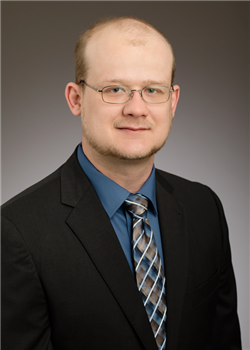Breadcrumb
Interdisciplinary Reproduction & Health Group Science Seminar – Sept. 6, 2023
The goal of the Interdisciplinary Reproduction & Health Group (IRHG) Seminar Series is to highlight transdisciplinary precision research taking place in the reproductive health field, provide opportunities for collaboration among researchers to build their own research efforts and promote clinical/researcher activity across the University of Missouri System and our partners.
The IRHG was organized and established through a faculty-driven, grass roots effort in 2016 to develop an integrative interdisciplinary program that transcends traditional departmental, college and system boundaries to foster excellence in reproduction, health research and education at Mizzou.
View all upcoming Reproductive Health events on the IRHG Seminar Series website.
For questions about this event, please reach out to Wipawee Winuthayanon.
"Regulating Uterine Glucose Levels During Early Pregnancy: The Role of Glycogen"
Speaker: Matthew Dean, PhD, Assistant Professor, Department of Animal Science, College of Agricultural, Consumer and Environmental Sciences, University of Illinois Urbana-Champaign
Date: Sept. 6, 2023, 4:00-5:00 p.m.
Location: Roy Blunt NextGen Precision Health Building, Atkins Family Seminar Room
In-person and virtual option
- Light snack will be provided in person. All are welcome!
- Attend virtually in Zoom with ID 969 5309 4849 and passcode 422673.
About the Speaker

Approximately 50% of pregnancies are lost in both humans and livestock, with most losses occurring before or during embryo implantation. During this time embryos are dependent on secretions to support and regulate embryonic growth, while the uterine endometrium must prepare for implantation. The Dean Lab is working to understand how nutrients, such as glucose, are taken up, stored by the uterus, and used by the embryo and endometrium during early pregnancy. Our goal is to undercover ways to increase fertility in humans and livestock.
Ovarian cancer is the 5th leading cause of cancer death in women. Part of the reason for this is a poor understanding of the early events in disease development. It is now clear that high-grade serous ovarian cancer (the most lethal subtype) originates in the fallopian tube epithelium and spreads to the ovary very early in disease development. The Dean lab is working to understand how these tumor cells recruit cancer associated fibroblasts and remodel the extracellular matrix in the ovary during colonization.
Dr. Dean works to increase reproductive efficiency in humans and animals by increasing our understanding of the ovary, oviduct, and uterus. Projects in his lab include understanding how the uterus stores nutrients to support early pregnancy, how endocrine disruption chemicals (EDCs) affect the function of the oviduct, and the early events in the development of ovarian cancer.